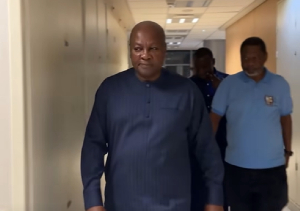Government in the West African Sub-Region have been charged to design their budgets in accordance with the parameters set to achieve the convergence criteria of the West African Monetary Zone (WAMZ).
In an interview with the Ghana News Agency (GNA) Business Desk, Dr Chris O. Itsede, Director General of the West African Institute for Financial and Economic Management, said this was urgent if the members were to meet the criteria that had eluded all of them for almost three years now.
He was commenting on fears that none of the 15 members could meet the criteria.
Dr Itsede is in Accra for a Regional Course on Economic Integration for Banking Institutions in West Africa.
He debunked claims that conditions for the convergence criteria were too stringent.
"The lifestyles and way of doing things in our countries must change," adding that governments should observe stringent financial housekeeping.
"If this happens we would be moving slowly, but steadily towards our goal. I believe that we are capable of meeting those parameters if we all set our minds, energies and political will towards it."
Asked what might happen if members did not meet the targets by the agreed 2005 deadline, Dr Itsede said: "I am sure that at least two countries could have met some of the targets and they would be allowed to kick-start the programme to be followed later by the other members."
He did not mention which countries might go through but said "we expect them to work and meet the target at the agreed time".
The Convergence Council has pointed out that macroeconomic performance in member countries last year was unsatisfactory, with fiscal dominance being the bane of the economies.
As in 2001, no country met the fiscal deficit-GDP criterion while two countries exceeded the ceiling on the Central Bank credit to Government.
Only two countries met the criterion on inflation, three met the target on external reserves.
The creation of the second monetary zone is a crucial first step towards the introduction of the "ECO" a common currency in the Sub-Region of more than 200 million people.
Nigeria, Ghana, The Gambia, Guinea and Sierra Leone intend to form a second monetary zone that would subsequently merge with the CFA Franc Zone of French-Speaking West Africa leading to a single convertible Sub-Regional currency.
Cape Verde and Liberia have observer status on the programme.
The failure of most member countries to meet the criteria at the end of 2002 prompted Heads of State and Government of the West Africa Monetary Zone (WAMZ) to shift the launch date of the Monetary Union from January 2003 to July 1, 2005.
Business News of Tuesday, 20 May 2003
Source: gna












